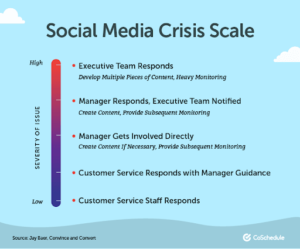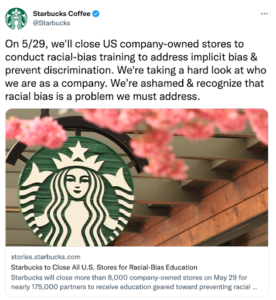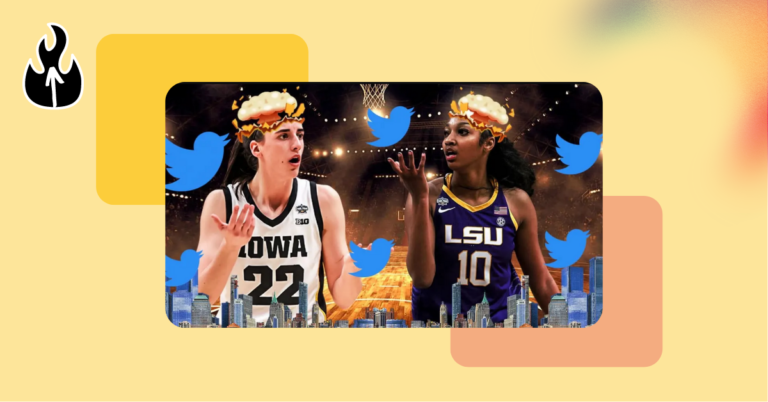Using Social Listening for Crisis & Reputation Management

If you’ve been reading our blogs, by now you know how essential social listening can be to helping you identify how your brand is doing online and how that compares to your competitors. However, you may not know that social listening should also be considered a key tool to help form your crisis and reputation management strategy.
Social media listening can give your company insight into emerging problems or issues your consumers have and as well as an outlook on issues that could impact your brand on a more global level…remember COVID?
Crisis Management
When crafting your crisis management strategy, there are a few things you should know to ensure its an effective one. This is where social listening comes into play to help provide the information you need to put together a well-thought out plan. Social listening can help with:
- Identifying a crisis before or as it happens
- Identifying any trending themes and issues
- Monitoring the conversations about your company and competitors
- Aligning your messaging with consumer behavior and/or needs
Don’t make the mistake of not having a crisis management plan in place, beause this puts your reputation on the line. Regularly monitoring and understanding the main issues and responding to them efficiently is a sure way to instill trust in consumers by proactively giving them what they need and not what you think they may need.
What Is Considered A Crisis?
The severity of a crisis can vary. In general, something can be considered a crisis if it is a major threat to the company that can have negative brand impact if not handled properly. How to properly handle these situations and who within your company should respond can be decided when creating your crisis management plan.
Creating An Effective Crisis Management Plan
In order to use the information provided by your social listening tool of choice, you need to ensure you’re answering the right questions to help inform your plan. Here are a few questions you should ask:
- Who is talking about the issue and how many people are talking about it?
- What media sources are covering the issue if any?
- What exactly are people saying about the issue?
- Is the conversation ramping up, dying down, or stopped altogether?
- What platforms are they discussing the issue on? Reddit? Twitter?
- Are there any similar crises from the past to provide context on this issue?
Sometimes consumers can make indirect comments and discuss issues that may not be easily pulled by your initial search query of the particular crisis. This is when an experienced data analyst can dig deeper to find those conversations. With so many conversations happening, it’s important to pull a quick report that covers the overarching themes around the issue to share with the rest of your team to put a quick but efficient response in place, if needed.
Sometimes, even when an issue is discovered quickly, a more thought-out response may take more time. That was the case for Starbucks back in 2018 when news broke quickly online after a video was posted of two African-American men being arrested in a Philadelphia Starbucks for suspicion of trespassing. Starbucks responded two days later on Twitter with an apology and shared a plan of action three days after the apology was issued.
Who responds to certain crisis issues within your company should also be pre-determined in addition to the proper plan of action on how to respond. The image below is a social media crisis scale by Coschedule which can be used as a great example to help determine where the line of action and response will come from depending on the severity of the crisis.

Conclusion
Using social listening can help quickly inform you and your team about the negative conversations your audience may be having about your brand, create a plan of action to respond to any issues or determine if no response is needed. In an emergency, when a brand responds quickly and efficiently to the issues, it ultimately helps strengthen your brand’s reputation and the trust your audience has in your brand.
If you need help creating your crisis management and brand reputation, finding your brand’s voice, or are interested in learning more about how we can help with community management, contact us for a free 30-minute consult.
Want more? Check out our other blogs:





